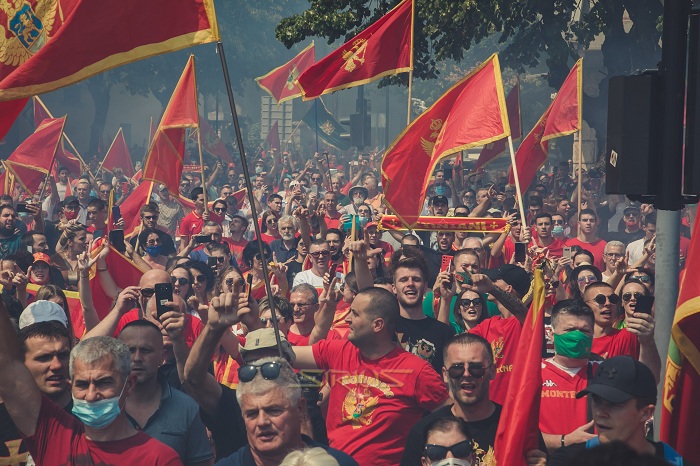In a comprehensive analysis of the political situation in Montenegro, the renowned American business risk agency “Fitch Solution” predicts the fall of the Government and a very difficult period in the fight against the pandemic. They also predict extremely unstable political conditions with a high probability of riots that will reduce the inflow of foreign investments and further complicate the social status of citizens, Pobjeda writes.
That is why they reduced the rating of the political stability index to 57.1, from the previous 58.3, so Montenegro fell to 42nd place out of 50 European markets that this company analyzes. Fitch Solution is a branch of the well-known credit agency Fitch Ratings, based in New York and London.
Poor immunization
The agency states that Montenegro was one of the hardest hit nations in the world during the pandemic. It was the fifth in the world in terms of deaths per million inhabitants. According to their assessment, great risks remain, because the majority of the country's population is still unvaccinated.
“We believe that the most difficult period for Montenegro will be after the winter and until the end of 2022. They estimate that Montenegro will completely vaccinate the majority of its adult population by the middle of next year at the latest. However, this depends primarily on the fact that the supply of vaccines will go smoothly, and a special problem is the spread of new infectious strains of the virus. A higher vaccination rate reduces the likelihood that significantly stricter measures will be introduced in the coming months, which will enable commercial activities to normalize by 2022,” the analysis points out.
In their view, this trend and relaxed travel restrictions will support Montenegro's economic recovery.
The analysis points out that the coalition government has close ties with the Serbian Orthodox Church.
“We predict that real GDP will grow from 14.8 percent decline in 2020 to 6.5 percent growth in 2021 and 5.5 percent in 2022. Improved economic activity will increase household incomes and improve labor market conditions, which should reduce some of the pressure from the ruling technocratic administration, which includes the “For the Future of Montenegro”, “Peace is Our Nation” and “United Reform Action” parties that came to power in late 2020. The coalition will face a number of challenges next year. Although the improved situation with Covid-19 will give the authorities a break, we note that the political environment will remain challenging,” the analysis said.
Numerous risks
They see several key risks for the Government in the coming year.
“There is a great chance that the government will collapse in 2022, given the great ideological differences and divisions within the ruling coalition. The coalition has a slim majority in parliament (41 seats out of 81), and as many as 12 ministers in the cabinet have never been in a political party. The constant divisions among the members of the coalition will additionally hinder the work of the executive power in the coming months”, they say in the analysis.
They remind that on September 4, Montenegro was seized by protests because the protesters tried to block the inauguration of the new head of the Serbian Orthodox Church.
“In some parts of the country, the protests were violent because the police used tear gas, and dozens of participants were injured. Many see the coalition government as having close ties to the Serbian Orthodox Church, which some sections of the electorate see as serving Belgrade's interests. We believe that the reputation and stability of the coalition will be significantly damaged by further protests. We see room for further unrest in the coming months, which could lead to a decrease in the country's attractiveness for investment abroad, but also increase sporadic disruptions to business in the domestic market,” the analysis warns.
Ties with Russia
In particular, they emphasize the slow progress in EU accession.
“It is evident that Montenegro is making limited progress in joining the EU in the coming months. The new coalition seeks closer ties with Russia than the previous administration of the Democratic Party of Socialists and is in dispute with China over the repayment of a loan to build the Bar-Boljare highway, complicating ties between Montenegro and the EU. We do not expect Montenegro to join the EU by 2025, given that it is unlikely to meet the necessary accession criteria, and there will be hesitation in enlargement due to the blockade of the Netherlands and France. Given that about 80 percent of Montenegrins support EU membership, that could serve as support for the coalition in the coming quarters,” the analysis reads.
According to this document, social stability is affected by the economic downturn, but also by protests.
“In the context of these factors, we have revised our short-term political risk index for Montenegro to 57.1 (out of 100) from the previous 58.3. The main reason for the downward revision is the lower score in the sub-component “social stability”, due to possible new protests as well as political instability in the coming months. This means that Montenegro has fallen to 42nd place out of 50 European markets that we cover on our ranking list”, concludes the analysis of the American agency.
